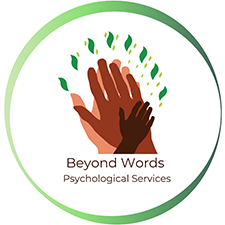Talking to Your Child about Adoption
As an adoptive parent, it may seem intimidating to talk to your child about being adopted. The good news is, your child ISN’T intimidated by this talk, and you don’t have to be either! When it comes to talking about adoption, it shouldn’t be “the conversation” – it should be an open and ongoing process throughout your child’s lifetime. Begin talking about adoption from the moment your child enters your life, sharing developmentally appropriate bits of information at a time. A child’s understanding of adoption varies depending upon his or her age and maturity level, and it’s important to acknowledge this in your choice of words and develop your own awareness around what adoption means to your child at any particular stage in life. I cannot recall a particular moment when I “realized” I was adopted from India as an infant – I just always knew, because my parents talked about it from such an early age and continued to have conversations about it as I grew older.
First and foremost, you need to feel comfortable talking about adoption, because you are setting the tone for how your child will frame this part of his or her identity. If you approach such discussions with curiosity, calmness and transparency, your child will understand that this is a normal part of his or her identity. Some key phrases to remember: “birth/biological parents” (not “real parents”), your birth parents “chose adoption” (not “gave you up” for adoption), “was adopted” (not “is adopted” – adoption signifies an event, not a label like “is brown-haired”), your birth parents “weren’t able to take care of any child” (not “couldn’t take care of you” – implies there was something wrong with your child).
By about age three, kids may repeat what they are told about adoption, but not understand the underlying concept (“I came from China and now I live with my mommy and daddy who love me and take care of me.”). This is an important time to read books or watch movies about adoption (check out Amazon or Google, tons of great sources about foster care and domestic/international adoption!). This will begin to normalize the adoption process and help your child understand that families are created in many different ways. Begin celebrating cultural holidays from various countries, including your own heritage and your child’s, and make these a part of your annual family traditions.
Around age four to six, children begin to understand that most of their peers are not adopted, and they may be curious to learn more about their own birth experience. At this age, it is very important to clarify your child’s meaning when he or she asks questions, and not just assume you understand the answer he or she is searching for (“Bobby said he grew in his mommy’s tummy, but I didn’t grow in your tummy – where did I come from?” – this may not be the “sex” question, but instead a question about hospital or location of birthplace). If you have any facts about your child’s life before you became a family, share them, and recognize that it is okay if you do not have answers. Continue to read books on the topic and begin to attend social events recognizing other adoptees or your child’s culture. Colorado has some excellent family-friendly events, such as through Colorado Heritage Camps, Inc.
By middle childhood, around age seven to eleven, children may begin to understand the losses adoption entails, ask for explanations or grieve for their birth parents. This is a stage in which emotional validation and empathy are more important than facts about your child’s background. It’s okay to allow him or her to grieve and feel sad or curious. Don’t try to make everything “all better.” Just be there to support your child, to sit with him or her in the confusion or pain, and to give honest answers based on facts, not speculation. Continue to attend cultural and adoption events, and do not limit yourself to only cultural events from your child’s background – attend some rooted in your own cultural background, as well. Show your child that every person has a rich and complex background to be valued.
In the teen years, kids may become more interested being a “normal family,” searching for an identity similar to his or her peers. By this age, “special” no longer means something important or exciting, but instead just “different.” Provide your child with continued empathy and support, and assist him or her in learning more about background or cultural information. However, do not force your child to engage in adoption or cultural events if he or she is not interested. Allow this part of his or her identity to develop over time at a pace he or she feels comfortable with – it should be something your child wants to do and does not feel obligated to attend.
When talking with a child of any age about adoption, the most important information you can impart is how much you love him or her, and how happy you are to have your child in your life. Acknowledge your child’s concerns and questions with empathy, validation and appropriate honesty, and let him or her know that you are always willing and available to talk about what adoption means.
Link of the week: THE UNIVERSAL IMAGE OF MEETING YOUR CHILD FOR THE FIRST TIME
Next week’s blog: HOW TO TALK TO YOUR CHILD ABOUT BIRTH PARENTS
